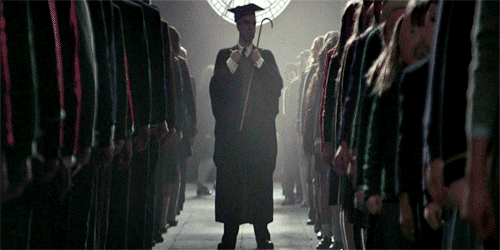Whoever wants to transfer knowledge to another person faces the problem of a system by which they will work. An educator may be aware of the system, but they don’t have to be, as the system in education exists independently of our awareness. In the past the system was based on the educator’s authority and information, mostly unavailable, which the educator presents to the students. Such a system has evolved very little for the past 200 years and apart from the educator whose authority is no longer guaranteed by their profession and who no longer holds monopoly on information as they are all around us, we have a program which is managed, but also limited by the educator. Such a system has numerous flaws:
1. It insists on mediocre way of thinking while excellence and any kind of difference are being suppressed. School program doesn’t accept differences. It can only pave the way for the children of similar knowledge level and logically it will turn to children whose number is the greatest – the average ones. The first 20% of those who
understand everything will immediately lose time in school while the last 20% will be condemned to get street education.
2. It neglects natural mechanisms of knowledge based on children’s curiosity, inquisitiveness and enthusiasm inspired by new findings, but uses children’s ability to memorise a huge amount of data. Nonsense of school’s curriculum based on memorising data, (for example, memorising all lakes in Siberia in the first grade of high-school which the author’s daughter goes to), at the time when you can get all the information by a click, shouldn’t be proven.
3. Promoting competitive spirit among children, undermines friendship and courage.

Consequences of such a system are:
1. Bureaucratic and cowardly mentality „Mind your own business“
2. There is a minor number of entrepreneurs and integrators at the expense of (cheap
labour force) workers and administrators
3. Negative selection in the society, the best ones go abroad and mediocre ones advance
through the structures of the system
Current education looks like this from a child’s perspective: when you turn six, they force you to go to school. Mitigating circumstance, which is actually not mitigating at all, is that all children go to school. In school you suffer more or less, then you get used to it and spend the next 20 years there. If you get lucky with the guards and other prisoners, you’ll survive without serious traumas. Maybe you’ll get close to someone and remember
it as friendship or first love.
Or you won’t.
Throughout those 20 years school will do its best to make you think „Inside the Box“, fit the system, adjust, not to stick out, educate you according to the curriculum. At every step you’ll be ranked, examined, assessed and tested. When you’re little, you need somebody who believes in you. So, such an enormous amount of distrust is always a trauma, but what can you do, prison is prison.
Besides the need for trust, we have the need for authenticity and friendship, as it was beautifully defined by Bojana’s professor „a child has a need to be somebody to someone“, but the curriculum will persuade you to mind your own business and tell you that your business is to be average.
Or it won’t?
Transliterated by Jelena

